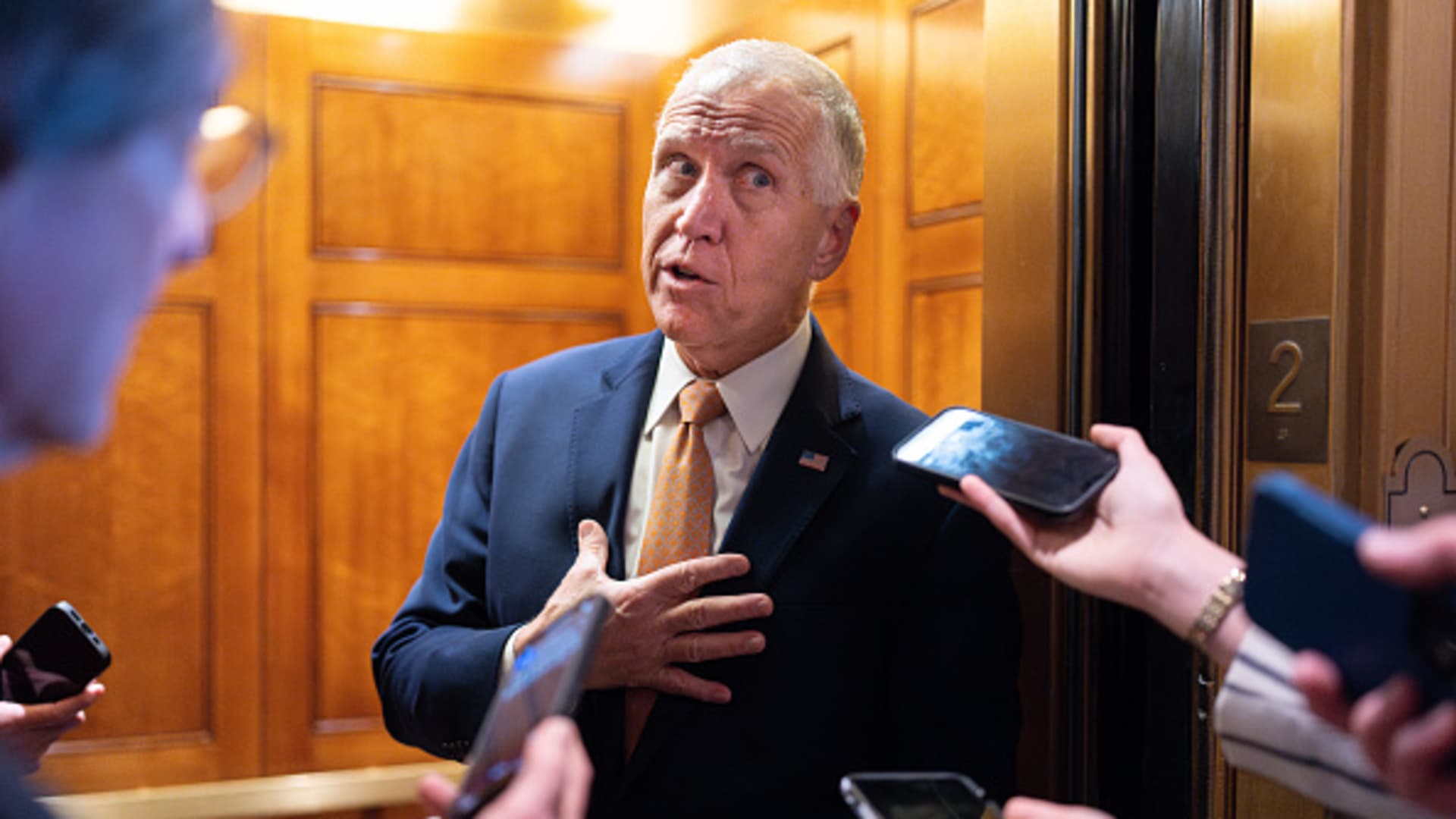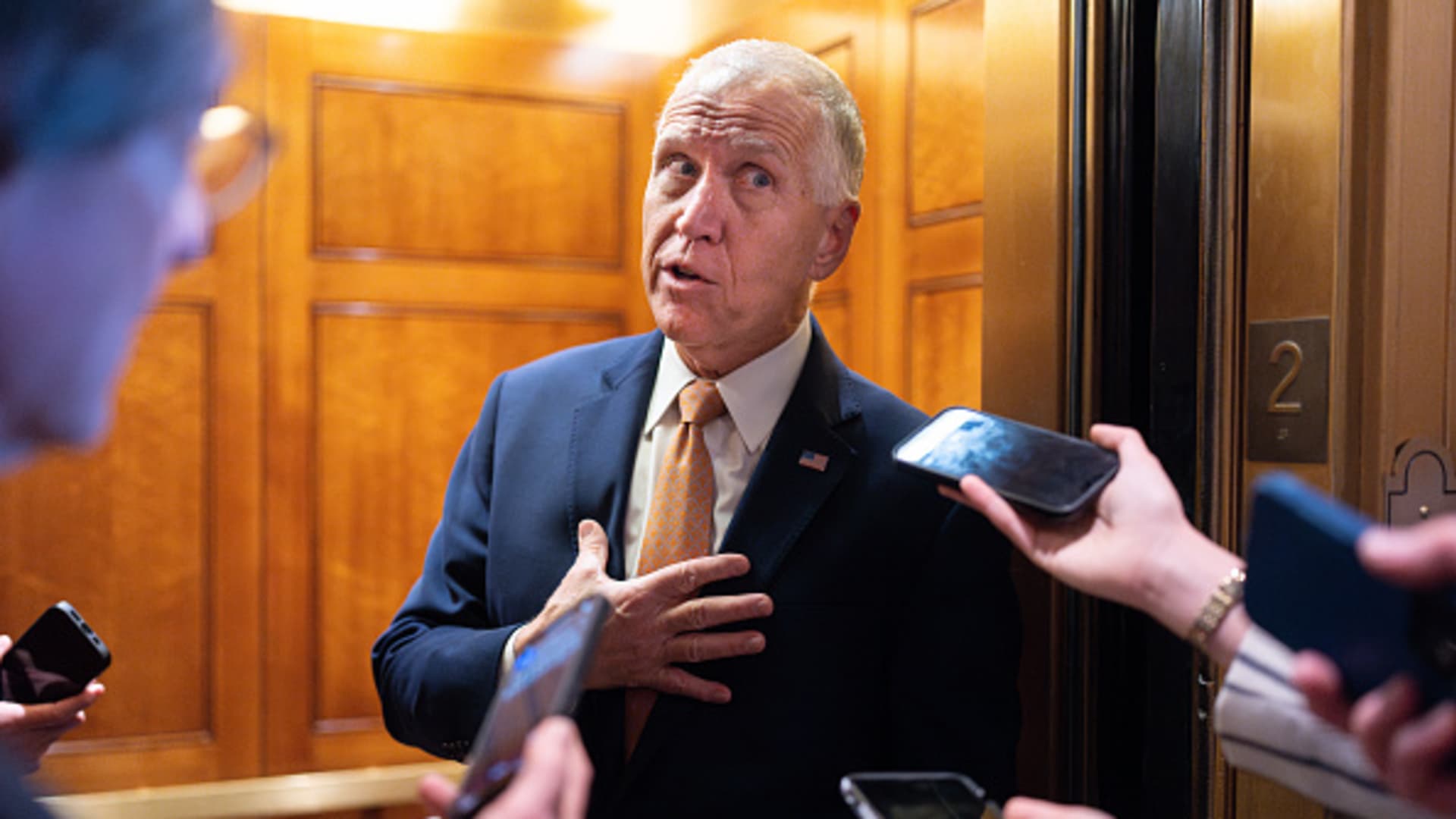Senator Thom Tillis of North Carolina’s decision to not seek re-election in 2026 marks a significant moment in contemporary American politics, reflecting both personal calculation and broader party dynamics. This decision comes on the heels of his high-profile opposition to a sprawling tax-and-spending package championed by former President Donald Trump, known as the “One Big Beautiful Bill.” The legislation aimed to push forward Trump’s agenda with sweeping changes to tax policy, Medicaid provisions, and other federal spending priorities. Tillis’s stance against the bill, along with his subsequent decision to retire, underscores the complex interplay of policy, party loyalty, and electoral strategy in today’s political climate.
The Trump Megabill Controversy and Its Implications
Senator Tillis’s opposition to the Trump-backed megabill was rooted in concerns about Medicaid provisions, including cuts and tax rate changes that he believed could negatively impact healthcare providers and vulnerable populations. His vote against the bill in a pivotal procedural vote was a bold move, given the bill’s alignment with Trump’s agenda. The legislation was a comprehensive package that sought to overhaul federal spending, tax policies, and entitlement programs, reflecting Trump’s vision for a transformative economic and social policy agenda.
Tillis’s concerns about Medicaid were not isolated. The bill’s proposed cuts to Medicaid, a program that provides healthcare to millions of low-income Americans, drew criticism from both Democrats and some Republicans. Tillis’s stance resonated with centrist Republicans who were wary of the bill’s potential consequences, particularly in a state like North Carolina, where healthcare policy has significant political and economic implications. His opposition highlighted the growing divide within the Republican Party between those who prioritize policy pragmatism and those who align closely with Trump’s agenda.
The Fallout: Conflict with Trump and GOP Pressures
Tillis’s decision to vote against the megabill drew immediate backlash from Trump, who publicly criticized the senator on social media and signaled support for primary challenges against him. This response underscored the ongoing tension within the Republican Party between Trump loyalists and more moderate or independent Republicans. The former president’s influence over the GOP base and party machinery remains significant, particularly in states like North Carolina, where his endorsement can sway primary elections and general election outcomes.
The public clash between Tillis and Trump highlighted the challenges faced by Republicans who deviate from Trump’s preferred policy or political line. Tillis’s opposition to the megabill was framed as a principled stand on policy grounds, but it also placed him at odds with a faction of the party that prioritizes loyalty to Trump above all else. This dynamic has become a defining feature of contemporary Republican politics, where allegiance to Trump’s agenda often trumps policy considerations.
Political Calculus Behind Tillis’s Decision
Tillis’s decision not to seek re-election appears to have been shaped by a combination of electoral vulnerability, party division, and personal considerations. North Carolina is a battleground state with shifting demographics and political leanings, making it a challenging environment for any incumbent. Tillis had experienced close races in previous election cycles, indicating that his re-election prospects would have been uncertain, especially in the face of a potential primary challenge from a Trump-backed candidate.
The refusal to back the megabill set Tillis apart from the party’s mainstream and placed him at odds with Trump’s faction, increasing the risk of a divisive primary challenge. Such a challenge could have weakened his campaign prospects and potentially led to a fractious general election. By stepping aside, Tillis potentially avoids a fractious primary battle and preserves his political legacy without the strains of further electoral contests under hostile conditions.
Personal considerations also played a role in Tillis’s decision. He remarked on being less enthusiastic about running another term, reflecting the emotional toll and exhaustion that long political careers can incur, especially amid heightened partisanship and public scrutiny. This sentiment is not uncommon among long-serving politicians who face the challenges of navigating a polarized political landscape.
Implications for North Carolina and GOP Senate Dynamics
The open Senate seat in North Carolina will likely become a highly contested race in 2026, attracting candidates across the Republican spectrum eager to capitalize on the vacancy. Given North Carolina’s pivotal status as a swing state, this election will be crucial for both parties’ Senate ambitions. The dynamics of this race may serve as a bellwether for broader national trends in Senate control and ideological shifts within both parties.
For the Republican Party, Tillis’s departure may exacerbate existing factional divides. The GOP faces the challenge of balancing Trump-aligned candidates with moderates who appeal to a broader electorate, especially in competitive states. The outcome of the North Carolina race could signal the party’s future direction and approach to intra-party dissent. A Trump-backed candidate may energize the base but could struggle to appeal to moderate voters, while a more centrist candidate may face challenges in securing the support of the party’s hardline faction.
Conversely, for Democrats, this presents an opportunity to target a key Senate seat with a potentially weakened and divided Republican opposition. The dynamics of this race may serve as a bellwether for broader national trends in Senate control and ideological shifts within both parties. Democrats will likely seek to frame the race as a choice between progressive policies and the divisive politics of the Trump era, leveraging the former president’s polarizing influence to their advantage.
Broader Reflections on the Republican Party’s Evolution
The episode involving Tillis and the Trump megabill encapsulates larger themes in American politics. The GOP increasingly demands alignment with Trump’s policies and style, marginalizing dissenting voices. Tillis’s experience reflects the cost of divergence within a party that is both ideologically and politically divided. The party’s future direction will be shaped by its ability to balance the demands of its base with the need to appeal to a broader electorate.
The controversy also centers on the interplay between policy issues and personality politics. The debate over the megabill was not just about tax reform and Medicaid but also about loyalties and personal allegiances within the party hierarchy. This dynamic complicates governance and legislative compromise, as politicians must navigate the delicate balance between policy principles and political expediency.
Electoral strategy and candidate viability are also at the forefront of the Republican Party’s challenges. Tillis’s calculation highlights the difficulty moderate Republicans face in appealing simultaneously to party hardliners and the general electorate in swing states. This intensifies questions about the Republican Party’s future electoral strategy and its ability to compete in a political landscape dominated by polarization and ideological rigidity.
Conclusion: A Pivotal Moment with Uncertain Ripples
Senator Thom Tillis’s announcement not to seek re-election after opposing President Trump’s megabill is emblematic of escalating tensions within the Republican Party and shifting political currents in North Carolina. The decision underscores how policy disagreements, ideological fault lines, and personality politics intersect to reshape political careers and party landscapes.
As North Carolina prepares for a competitive Senate race in 2026, the broader national political environment will watch closely. Tillis’s departure opens the door for evolving debates over party identity, campaign strategy, and governance philosophy, laying bare the challenges of navigating a polarized era where allegiance to Trump’s agenda remains a decisive factor.
This development echoes beyond a single state, hinting at deeper transformations within American conservatism and the ongoing contest over the Republican Party’s soul in a post-Trump era. The outcome of the North Carolina Senate race in 2026 will provide valuable insights into the direction of the Republican Party and the broader political landscape, as well as the enduring influence of Donald Trump on the GOP’s future.












